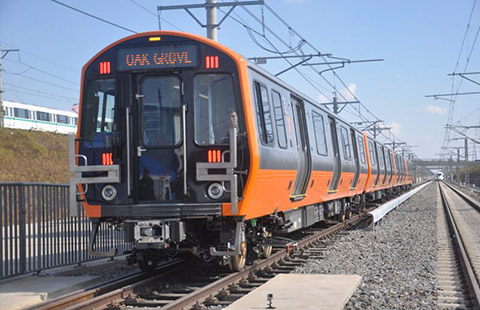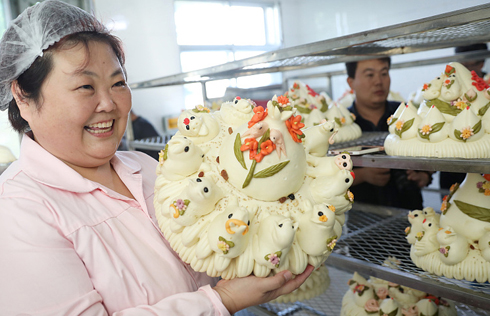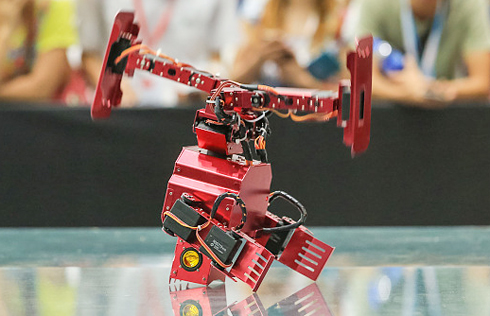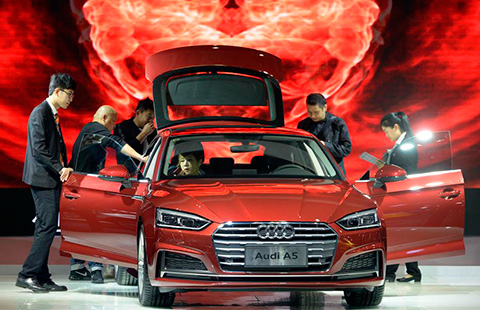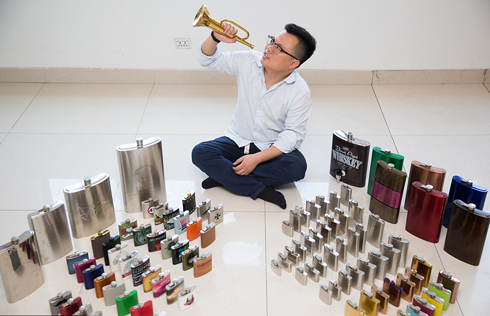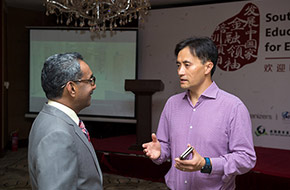Chemical industry to play a crucial role
 |
|
Bjoern Skogum, president of Covestro China. [Photo provided to China Daily] |
Editor's Note:
The Communist Party of China has just concluded its 19th National Congress in Beijing. In the runup to the meeting, China Daily asked business leaders from major multinational companies for their views on economic developments here and the country's global leadership role.
Bjoern Skogum is president of Covestro China, a subsidiary of Covestro, the leading supplier of high-tech polymer materials based in Germany.
What is the biggest challenge China faces, and how can the country overcome it?
We live in times of great social and economic transformation. In fact, we witness an unprecedented trend toward urbanization. According to the United Nation, by 2050 one quarter of the world's largest cities will be in China.
At Covestro, we believe sustainability is essential to preserve our planet, and improve the quality of life for millions.
Therefore, innovative solutions are needed to create an urban environment which allows for more sustainable living.
For example, Covestro is committed to electric vehicles. Last year, we presented a groundbreaking concept for electric mobility, involving, for the first time, wrap-around glazing made from polycarbonate and innovative lighting with holographic films.
The chemical industry plays an essential role in sustainable urbanization and helps to improve living standards.
What factors will boost growth this year and in 2018, and what are the challenges facing China's economy?
In the 13th Five-Year Plan (2016-20) and Made in China 2025 strategy, there is a vision for an innovation-driven economy. As a world-leading material solution provider, Covestro has firmly integrated China and our customers into our global network after accumulating more than 15 years of research and development experience here.
While China has produced innovative business models, the country still lags behind in (some) science and materials-based innovation. This requires original inventions or engineering breakthroughs.
Naturally, Covestro is prepared to help China in further advances in innovation by partnering with academia and industry players. Indeed, the Covestro-Tongji Innovation Academy has achieved fruitful results in education, innovation and talent development since 2011.
What opportunities will the Belt and Road Initiative throw up for China and the rest of the world?
The aim is to revitalize the economies along the old Silk Road through enhanced connectivity and cooperation.
At the same time, this allows global companies, such as Covestro, to further expand its footprint.
Planned infrastructure projects will need material solutions and therefore present huge market potential.
Already our company is involved in Belt and Road economies by working with Chinese companies on waterborne polyurethane coatings solutions for urban rail and freight trains.
Covestro also benefits from having a major presence in China. The transportation time of our cold-sensitive raw materials from Germany to Central China has been reduced from between two to three months to 20 days. We have managed to do this by using temperature-controlled containers when the materials are transported by rail.
The first shipment arrived at the end of June, but then rail transportation has proved to be a viable alternative. It is cheaper than air freight, faster than maritime shipping, and more environmentally friendly than both of them.
What are the most innovative trends and products in China?
Today, the world has entered the digital revolution era. This latest global trend has changed economic models and given birth to emerging business patterns, such as e-commerce and the sharing economy.
A number of Chinese companies, such as Alibaba (Group Holding Ltd) and Tencent (Holdings Ltd) are leaders in this field. But, again, the high-tech plastics industry is helping to propel this trend.
Companies such as Covestro are already involved in this transformation by making products more efficient and user-friendly through good design and safety features.
One example is Makrolon, our high-tech polycarbonate, which is the material of choice in many electronic products.
China is known as a manufacturing giant, but what will the country's "calling card" be in the future?
The country is on its way to becoming a driving force in innovation. In fact, China has shown determination to transform itself into an innovation-driven economy, and this will offer market opportunities for industries around the world.
Although a gap still exists in terms of innovation capabilities in science and technologies, companies such as Alibaba and Huawei (Technologies Co) have proved the country can produce world-class businesses.
With our domestic partnerships, Covestro is well positioned to support China in becoming a sophisticated innovation hub, which will inspire the world.





